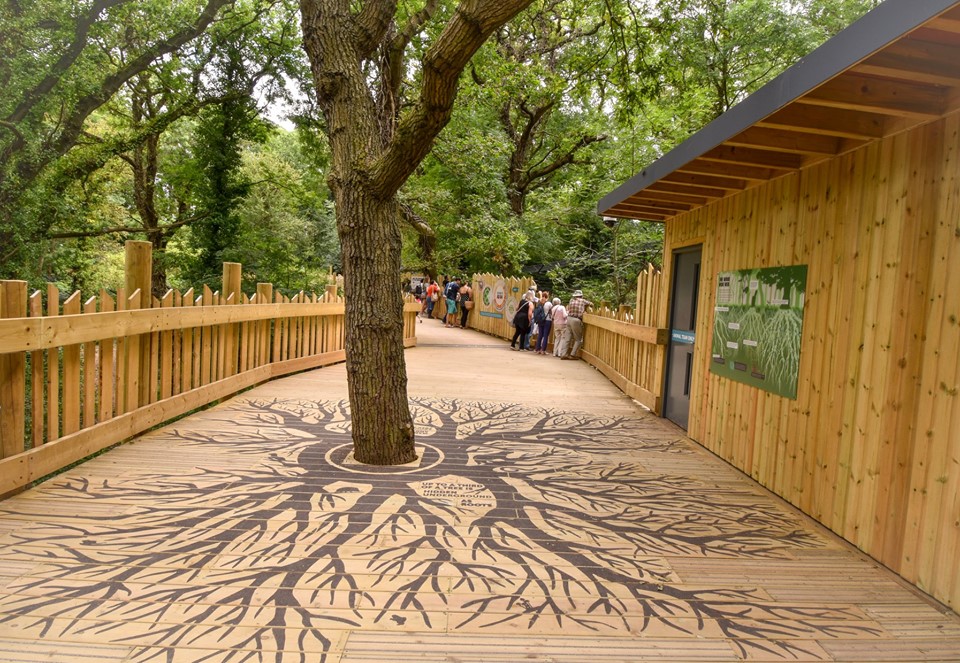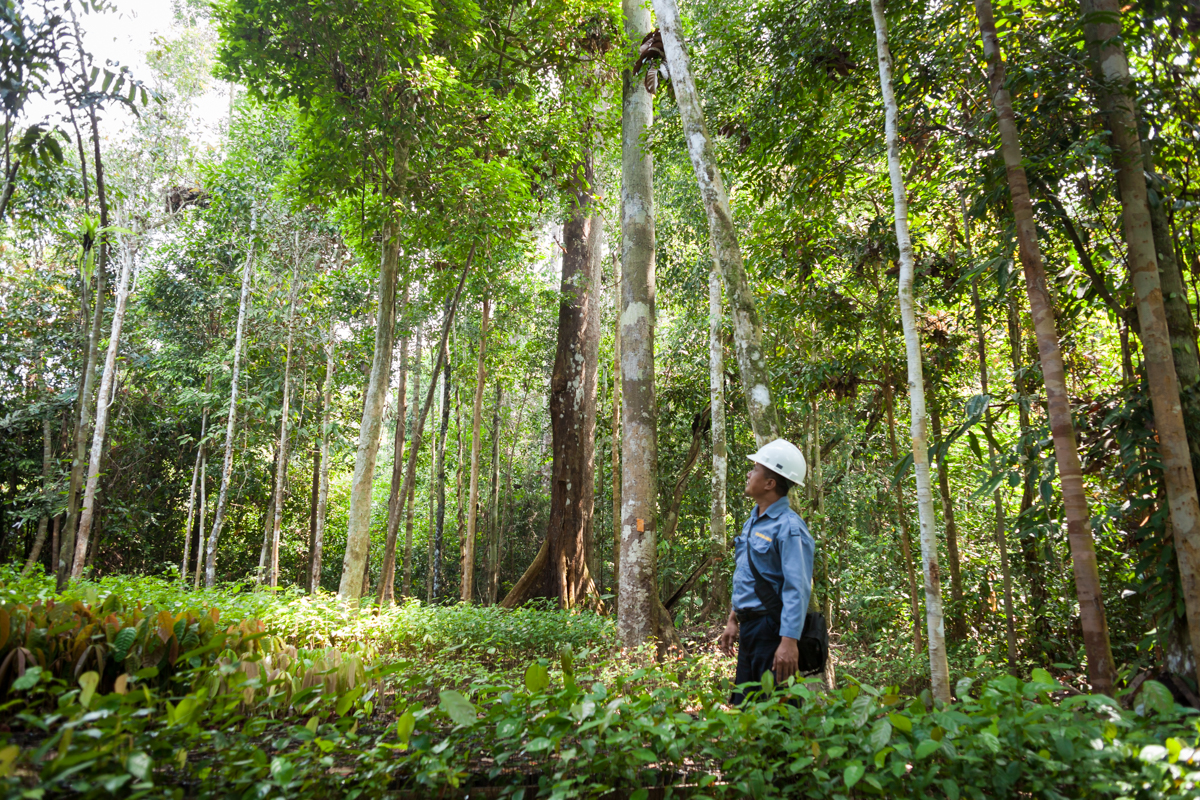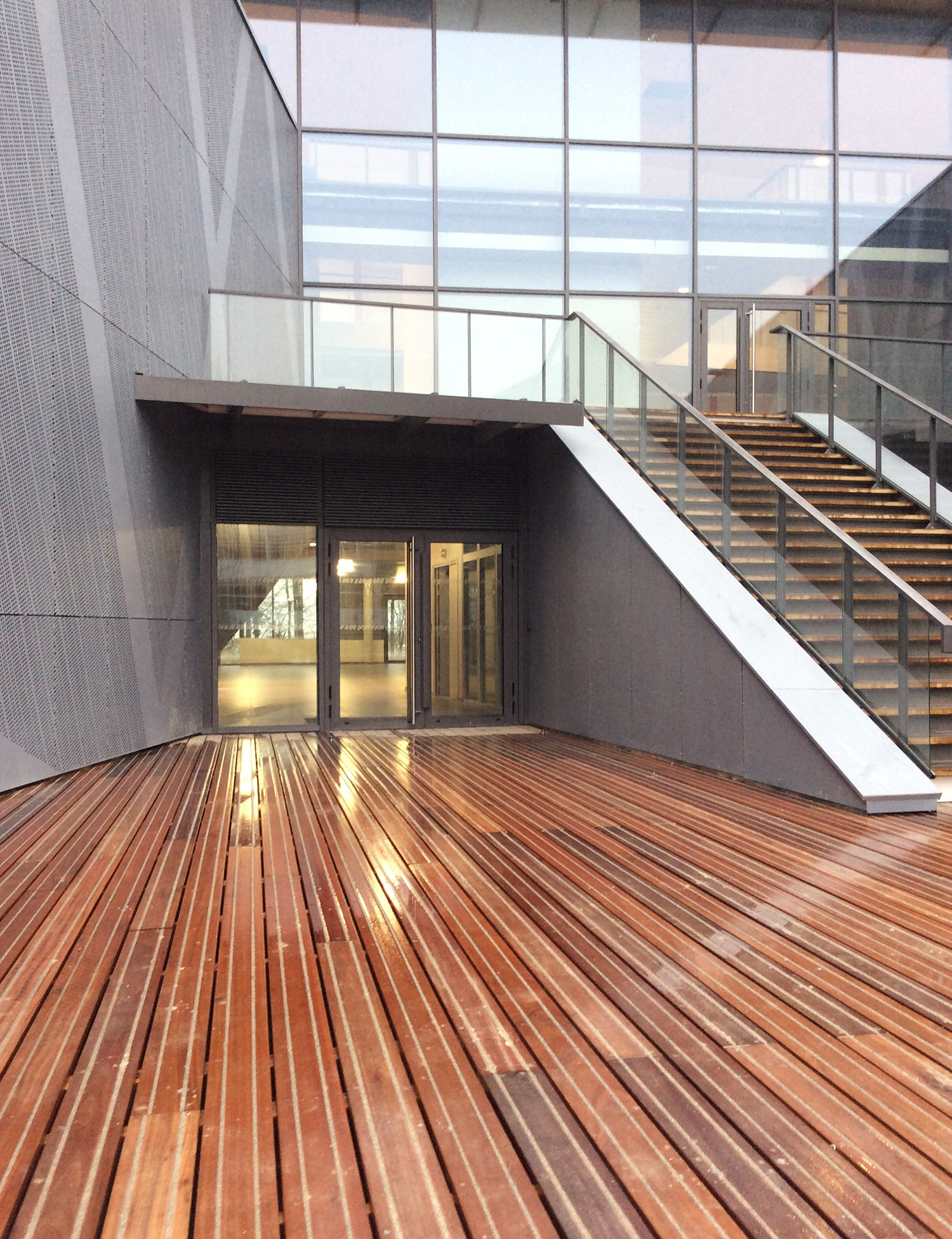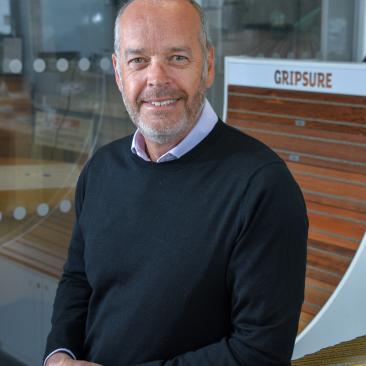This is a guest article by Gripsure.
In an era of increasing environmental consciousness, sustainable practices have become paramount in various industries. The timber industry, in particular, has faced scrutiny for its impact on forests and ecosystems worldwide. However, initiatives such as Forest Stewardship Council (FSC) certification have emerged to ensure responsible and sustainable timber sourcing.
This case study explores the journey a piece of wood goes through, from FSC certified forest to final product. Gripsure is the UK’s leading manufacturer and supplier of non-slip timber decking. Based in Cornwall, Gripsure has an international market and has produced anti-slip deck boards for commercial and residential properties all over the world, the majority of which are FSC certified.

To highlight the transparency and traceability behind the FSC certification, Gripsure decided to source the origin of the timber used for anti-slip deck boards for a project in France. Over 1300 metres of Yellow Balau hardwood decking was installed at the University of Amiens, chosen for its durability, strength and long lifespan. But the question is, where did they come from?
FSC chain of custody certification verifies that FSC-certified material has been identified and separated from non-certified and uncontrolled material as it makes its way along the supply chain, from the forest to the market.
In the case of the University of Amiens, Gripsure were able to identify the source of the timber used to the Dwimajaya Utama forest in Central Kalimantan, on the island of Borneo. Borneo is home to vast forests renowned for their rich biodiversity and pristine ecosystems. However, the rampant deforestation and illegal logging have threatened these fragile environments. To combat these challenges, responsible forestry practices have been implemented. These practices involve selective logging, reforestation, and protection of endangered species and habitats. The Dwimajaya Utama forest is now over 120,000 hectares in size and has been FSC certified since 2012.

FSC-certified timber companies in Borneo follow sustainable extraction practices. This involves careful planning and selective harvesting methods to minimise ecological damage. Only mature trees are harvested, allowing the forest to regenerate naturally. The extraction process prioritises preserving the integrity of the ecosystem and protecting wildlife habitats.
After extraction, the timber is transported to local sawmills for processing. These facilities are equipped with modern machinery and skilled workers who transform the timber into various products, including deck boards. The entire manufacturing process adheres to FSC standards to maintain the integrity of the certification.
 Once the timber has been processed and transformed into deck boards, it is prepared for shipment to the UK. Shipping companies involved in the process prioritise sustainable transportation practices, including minimising carbon emissions and ensuring responsible vessel disposal.
Once the timber has been processed and transformed into deck boards, it is prepared for shipment to the UK. Shipping companies involved in the process prioritise sustainable transportation practices, including minimising carbon emissions and ensuring responsible vessel disposal.
Upon arrival in the UK, these particular boards were distributed to Gripsure, who prioritise sustainable and environmentally friendly construction materials. They applied their unique anti-slip aggregate inserts to the timber deck boards, which ensure staff and students are kept safe on their feet whilst moving around the Amiens campus, combating against wet and icy conditions which typically result in decking becoming dangerously slippery.

Managing Director, Mike Nicholson, said: "Logging in Borneo has been controversial, with much of the rainforest cleared, however this shows exactly why FSC certification is vital for sustainable forestry in the region. The management plan for Dwimajaya Utama was developed over two years and has resulted in a forest that can provide economic benefits for local people whilst remaining as a biodiverse ecosystem.
Every certified company has a huge effect on the supply chain, rewarding the efforts that foresters have made to become FSC certified, and encouraging other businesses to join the movement. We care deeply about the impact our manufacturing has at every step of the chain, which is why we will only use sustainably sourced timber. We hope more will join the efforts in operating in a sustainable and responsible way."
Find out more about Gripsure’s other projects and products.

